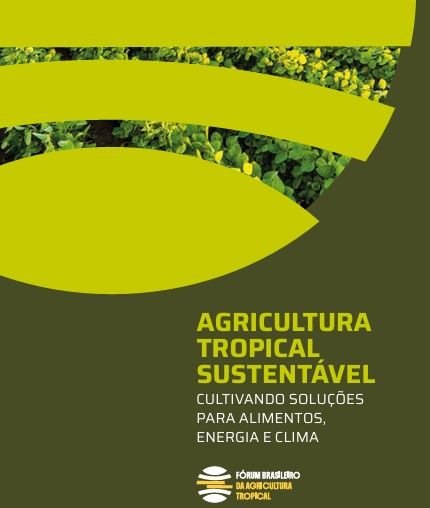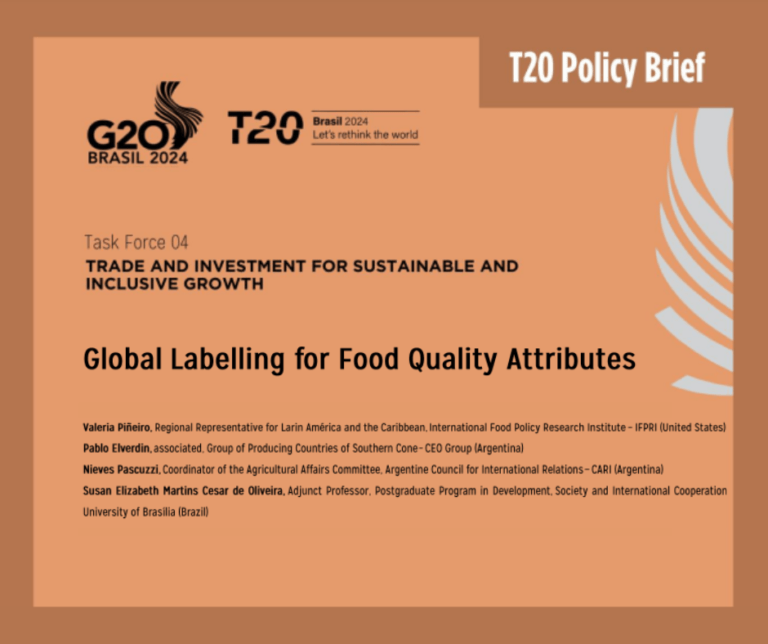Abstract

Food security, especially in emerging countries with limited resources, is a critical global issue, worsened by climate change. Sustainable production should integrate biodiversity conservation and emissions reduction. Imbalances between food production and consumption lead to increased reliance on imports, highlighting the need for strategic food trade to stabilize global food systems. This trade offers opportunities to reform environmentally harmful production methods. For the G20, prioritizing research and development for higher food productivity with fewer resources is crucial. Facilitating international trade through improved rules benefits importing nations. Strengthening enforcement mechanisms ensures compliance and fosters transparency in global trade. Basic sustainability guidelines should be adopted to promote trade from environmentally friendly producers to countries with food self-sufficiency constraints. G20 policies should aim to transform food systems toward sustainability while ensuring global food security and equitable trade.



